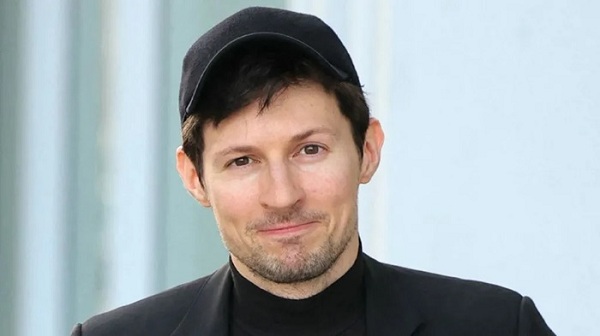The founder of instant messaging app Telegram, Pavel Durov, says the more than 100 children he has fathered will share his estimated $13.9bn (£10.3bn) fortune.
"They are all my children and will all have the same rights! I don't want them to tear each other apart after my death," Mr Durov told French political magazine Le Point.
Mr Durov said he was the "official father" of six children by three different partners, but the clinic "where I started donating sperm fifteen years ago to help a friend, told me that more than 100 babies had been conceived this way in 12 countries."
He also reiterated that he denied any wrongdoing in connection with serious criminal charges he faces in France.
The self-exiled Russian technology tycoon also told the magazine that his children would not have access to their inheritance for 30 years.
"I want them to live like normal people, to build themselves up alone, to learn to trust themselves, to be able to create, not to be dependent on a bank account," he said.
The BBC has approached Mr Durov for comment.
The 40-year-old said he had written a will now because his job involved "risks – defending freedoms earns you many enemies, including within powerful states".
His app, Telegram, known for its focus on privacy and encrypted messaging, has more than a billion monthly active users.
Mr Durov also addressed criminal charges he faces in France, where he was arrested last year after being accused of failing to properly moderate the app to reduce criminality.
He has denied failing to co-operate with law enforcement over drug trafficking, child sexual abuse content and fraud. Telegram has previously denied having insufficient moderation.
In the Le Point interview he described the charges as "totally absurd".
"Just because criminals use our messaging service among many others doesn't make those who run it criminals," he added.
Russian-born Mr Durov now lives in Dubai, where Telegram is based. He holds dual citizenship of France and the United Arab Emirates.
The founder of VKontakte said in 2014 that he had been fired from the Russian social network after refusing requests from the Kremlin to censor posts.
He founded Telegram in 2013, and the app remains popular in Russia.
Telegram allows groups of up to 200,000 members, which critics have argued makes it easier for misinformation to spread, and for users to share conspiracist, neo-Nazi, paedophilic or terror-related content.
Earlier this year, Mr Durov defended Telegram's record on tackling child abuse.
"Since 2018, Telegram has fought child abuse in many ways: content fingerprint bans, dedicated moderation teams, NGO hotlines, and daily transparency reports on banned content - all verifiable," he wrote in a post on X.
"Falsely implying Telegram did nothing to remove child porn is a manipulation tactic."
A Telegram spokesperson told BBC News that the app was "not effective for the spread of harmful content because it does not use algorithms that promote sensational materials like those used on other platforms".
In the UK, the app was scrutinised for hosting far-right channels that were instrumental in organising the violent disorder in English cities last summer.
Telegram did remove some groups, but overall its system of moderating extremist and illegal content is significantly weaker than that of other social media companies and messenger apps, according to cybersecurity experts.
The app says it has "removed all channels found sharing calls for violence" and it denies that its system of moderation is weaker than others'. "This is false," its spokesperson said. "Telegram's moderation meets or exceeds all industry standards."
"Telegram blocks tens of thousands of groups and channels daily and removes millions of pieces of content that violate its Terms of Service, including incitement to violence, sharing child abuse materials, and trading illegal goods," the app says on its site.
BBC





